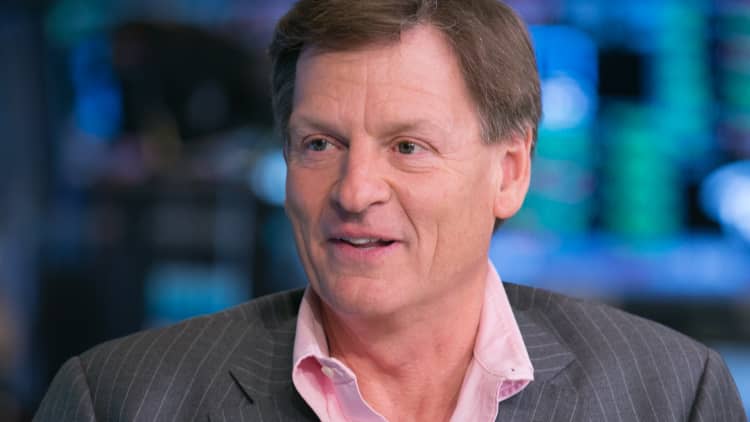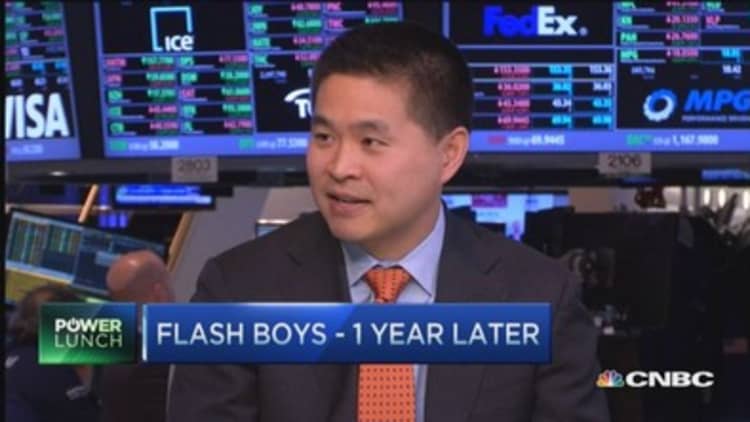



One year after his book "Flash Boys" rocked Wall Street, author Michael Lewis said Monday he still believes the stock market is "rigged."
But he has one regret for using that word: It overshadowed everything else.
"My biggest complaint about the response in the book … is the book generated this instant controversy and so once it became this object of controversy it didn't get read for what it was. It got seen as this provocation," Lewis said in an interview on CNBC's "Power Lunch."
In the book, Lewis claimed the market was rigged in favor of high-frequency traders, who use sophisticated computer algorithms to execute orders at very fast speeds.
The book sparked a heated debate about the merits of high-frequency trading.
Read MoreWhy haven't 'Flash Boys' claims been proven?
Lewis said that it's not high-frequency trading that is inherently unfair, but the way the market is structured. The problem is that "distinguishing between good HFT and bad HFT is impossible."
He also thinks the complexity of the market now allows for bad behavior to go unnoticed.
"I think it's generally true that complexity is the new opacity in the financial market," he said. "The way bad behavior gets disguised is it gets made very complicated. Complexity was at the root of the financial crisis."
As for the regulators who police the market, they are conflicted partly because they are "captured by the industry," Lewis said. Many of them later go to work for the firms in the industry.
"The subject of the stock market right now is so complicated that it would not surprise to me to learn that within the SEC they're arguing with each other about how it actually works. I don't think there's a clear picture," he added.
While there has been very few actions taken against high-frequency traders, Brad Katsuyama, the protagonist of Lewis' book, told "Power Lunch" he wasn't surprised.
"When you do have clients, you have a higher level of responsibility than when you don't have any, and I think in the case of high-frequency trading firms, they don't have clients," the president and CEO of IEX said.
"If you are looking at how to attack this problem, you start at the inside and look for people that have core fiduciary responsibilities and then you work your way out."
Read MoreMichael Lewis' 'Flash Boys,' one year on
Last April, the infamous showdown between Katsuyama and BATS Global Markets then-President William O'Brien on CNBC stopped trading on the floor of the New York Stock Exchange.
Read More'Flash Boys' claims 'a big lie': Bart Chilton
The fight kicked off after O'Brien accused Katsuyama of scaring investors to promote his business.
"It reflects … a continued lack of understanding about how the market operates or just an unwillingness to acknowledge it because you're trying to launch a new business," O'Brien said at the time.
In response, Katsuyama reiterated his belief that the markets are rigged and told O'Brien, "You're a part of the rigging. If you want to do this, let's do this."
(To watch the full exchange, click here.)
On Monday, Katsuyama said despite the firestorm that erupted after "Flash Boys," most of the feedback he's received has been positive.
"What's been most surprising to me … there was this real kind of intrinsic laser-like focus on high-frequency trading when in reality it was the system overall. It was about dark pools and HFT and brokers and exchanges," he said on "Power Lunch."


